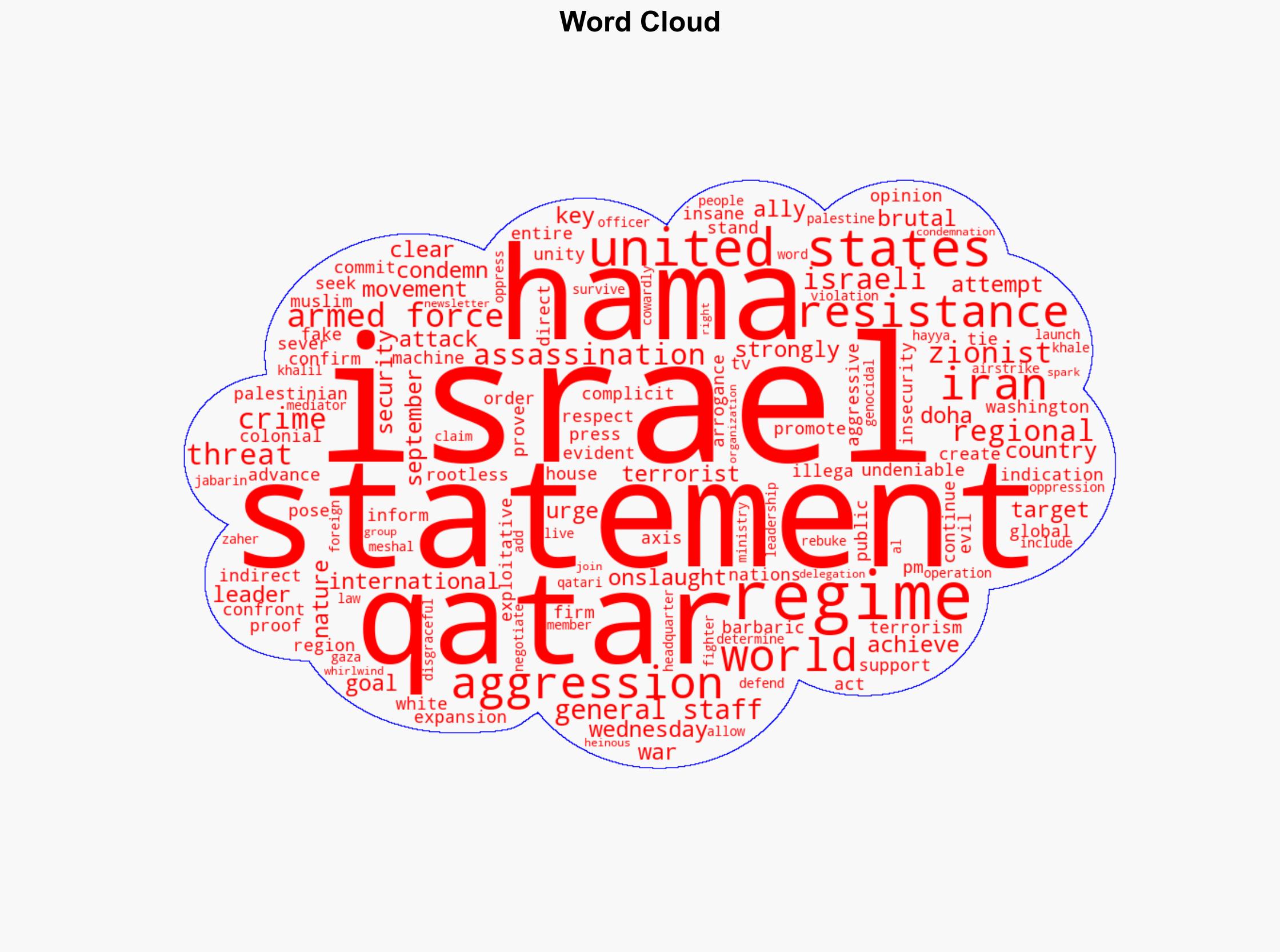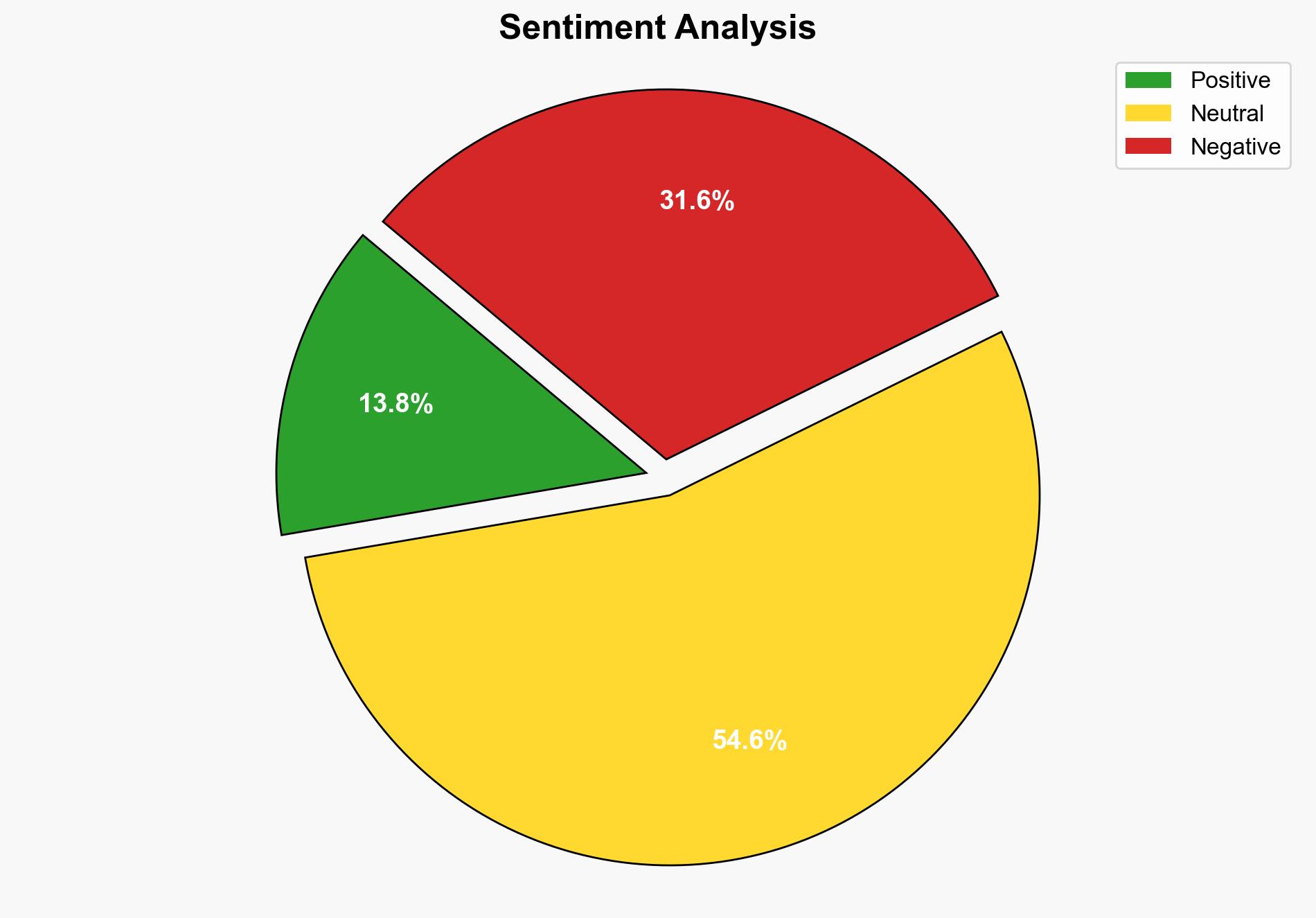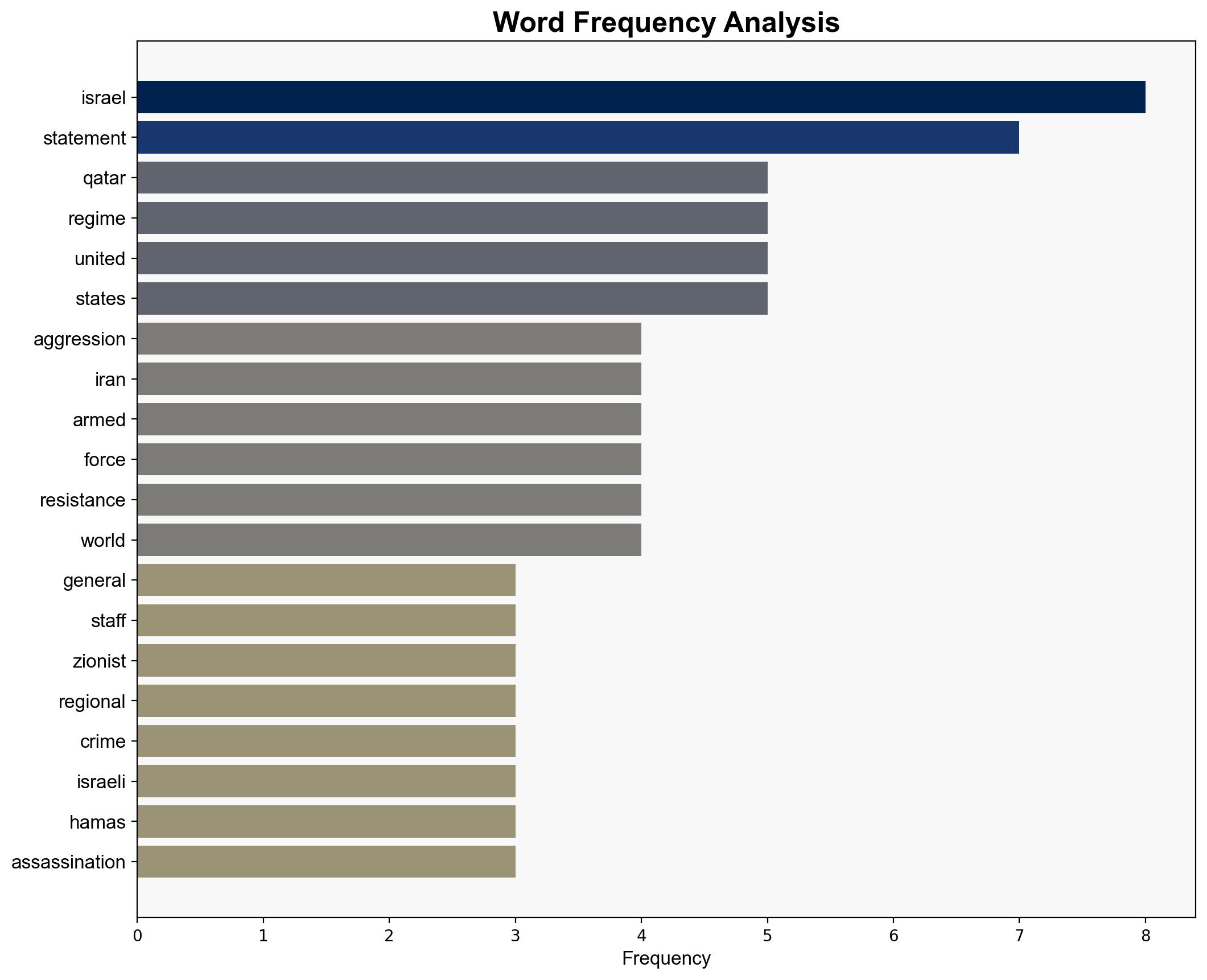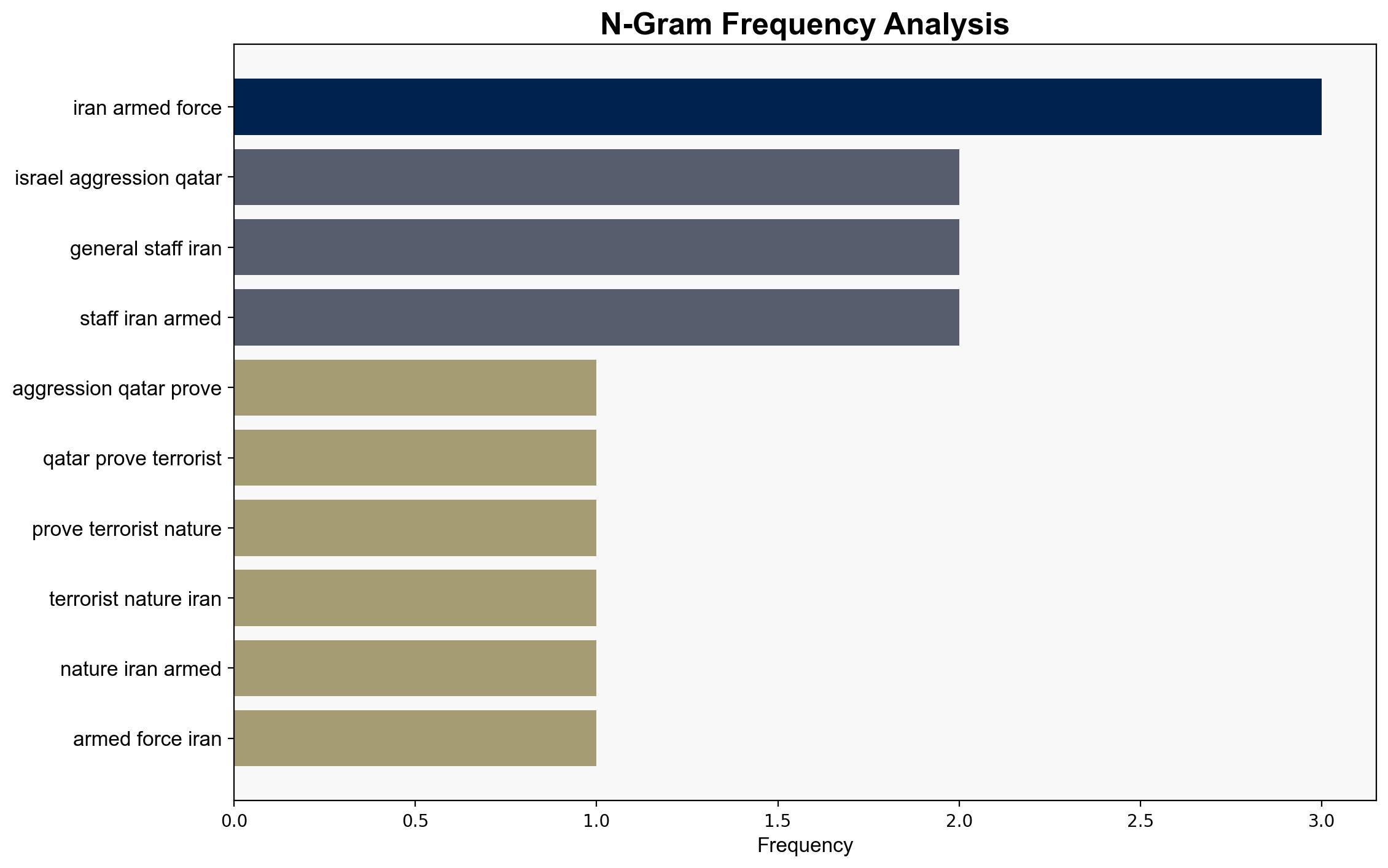Israel’s aggression on Qatar proves its ‘terrorist’ nature Iran’s Armed Forces – Globalsecurity.org
Published on: 2025-09-11
Intelligence Report: Israel’s aggression on Qatar proves its ‘terrorist’ nature Iran’s Armed Forces – Globalsecurity.org
1. BLUF (Bottom Line Up Front)
The most supported hypothesis is that the reported Israeli aggression in Qatar is part of a broader regional strategy to counteract Hamas and its allies, with a medium confidence level due to limited corroborative evidence. Strategic recommendation: Enhance diplomatic engagement with regional stakeholders to de-escalate tensions and verify claims through independent intelligence sources.
2. Competing Hypotheses
1. **Hypothesis A**: Israel’s actions in Qatar are a targeted operation against Hamas leadership, aiming to disrupt their activities and weaken their influence in the region. This aligns with Israel’s historical stance against Hamas and its strategic interests in curbing terrorism.
2. **Hypothesis B**: The incident is a misrepresented or exaggerated narrative by Iranian and Qatari sources to galvanize regional opposition against Israel and the United States, portraying them as aggressors to strengthen the Axis of Resistance.
Using ACH 2.0, Hypothesis A is better supported by historical patterns of Israeli military operations against Hamas. However, Hypothesis B cannot be dismissed due to the lack of independent verification and potential bias in the reporting source.
3. Key Assumptions and Red Flags
– **Assumptions**:
– Hypothesis A assumes Israel has actionable intelligence justifying the operation.
– Hypothesis B assumes bias in Iranian and Qatari reporting.
– **Red Flags**:
– Lack of independent verification of the incident.
– Potential cognitive bias in interpreting actions as aggressive without considering defensive motives.
– Possible exaggeration or manipulation of facts by involved parties to serve political agendas.
4. Implications and Strategic Risks
The incident could escalate regional tensions, potentially leading to broader conflict involving multiple state and non-state actors. Economic impacts may arise from disrupted relations and increased security costs. Cyber retaliation or propaganda campaigns could further destabilize the region. Psychological impacts include heightened fear and mistrust among regional populations.
5. Recommendations and Outlook
- Engage in diplomatic dialogue with Qatar, Israel, and Iran to clarify the situation and prevent escalation.
- Enhance intelligence-sharing mechanisms with regional allies to verify claims independently.
- Scenario Projections:
- Best: Diplomatic resolution and de-escalation of tensions.
- Worst: Escalation into broader regional conflict involving multiple actors.
- Most Likely: Continued diplomatic standoff with sporadic incidents.
6. Key Individuals and Entities
– Khalil al-Hayya
– Khaled Meshal
– Zaher Jabarin
7. Thematic Tags
national security threats, cybersecurity, counter-terrorism, regional focus





